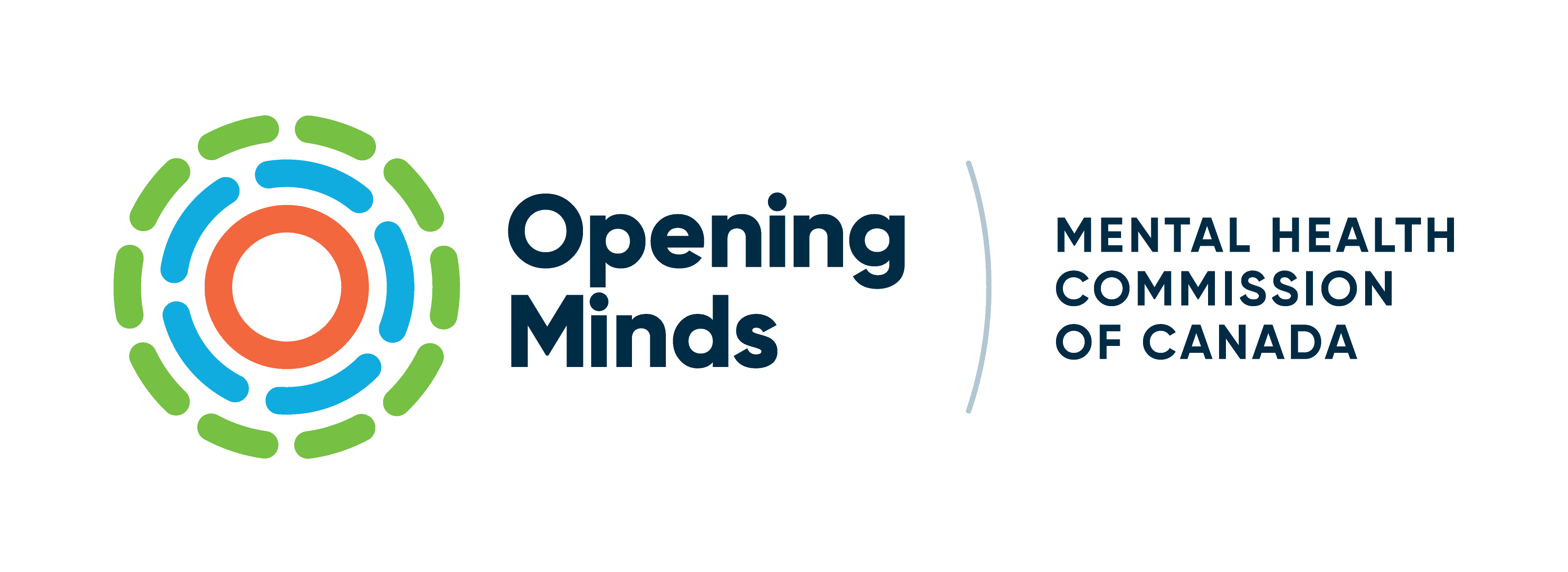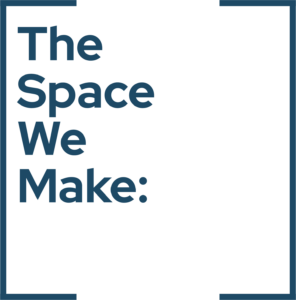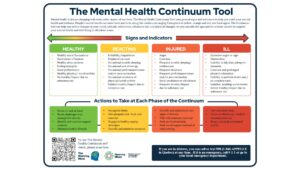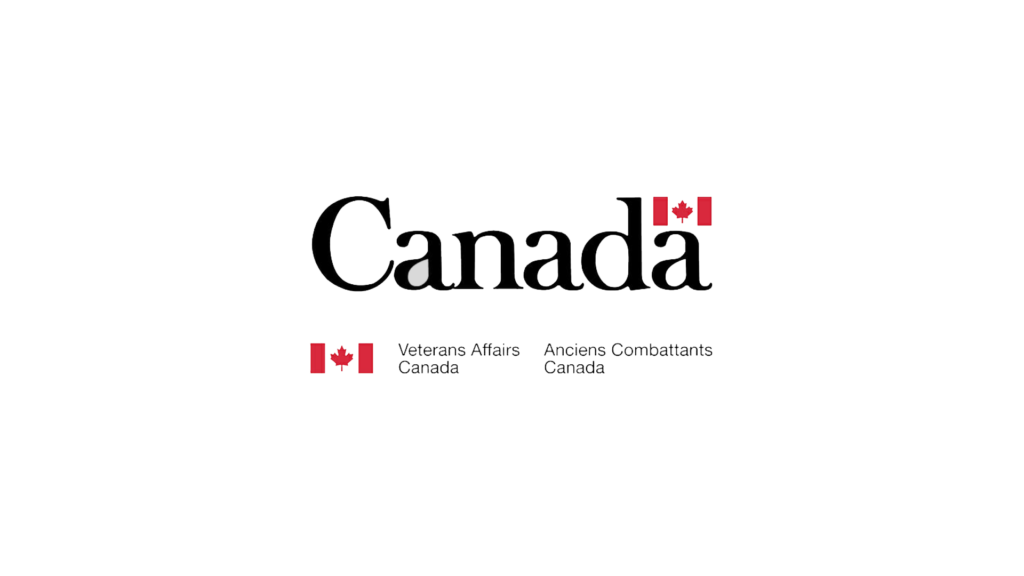The Mental Health First Aid for the Veteran Community (MHFA-VC) program, established by the Mental Health Commission of Canada and Veterans Affairs Canada, addresses mental health challenges faced by Canadian veterans and their families. By equipping families and communities with practical tools, MHFA-VC strengthens support networks, ensuring veterans feel understood and supported in their journey to wellness.
Case study highlights:
Started MHFA-VC Training: July 4th, 2014
MHFA-VC Courses Run (2022-2023): 33
People Trained (2022-2023): 456
About one out of every five Canadian veterans experience mental health issues like depression, post-traumatic stress disorder (PTSD), and anxiety disorders at some point in their lives.1
Many veterans who struggle with these problems don’t seek help because they worry about being judged.2
Louise Bradley, previous CEO of the Mental Health Commission of Canada proposed to Julian Fantino, then Minister of Veterans Affairs Canada (VAC), a special mental health training for Veterans on July 4, 2014. This training, called Mental Health First Aid for the Veteran community (MHFA-VC), is designed for Veterans, their families, health professionals, and community members. It helps people understand and support Veterans with mental health challenges. Similar to physical first aid, mental health first aid offers support to someone who may be experiencing a mental health crisis until they are able to access mental health services in their community, if needed. The program was developed through funding from the Department of Veterans Affairs Canada, and created with input from veterans, veterans organizations, and Veterans Affairs Canada. The program has had a positive impact, with many people eager to participate.
Steve Walsh, Commission Contractor & RN at the Royal Ottawa Community Mental Health Program, who works with veterans, has seen firsthand how some veterans feel forgotten and end up in shelters or rooming houses. “I’ve met many veterans over the years in shelters and rooming houses and places where they’ve kind of been forgotten,” he explained.
As a master trainer for the Mental Health First Aid Veteran Community (MHFA-VC) course to support veterans dealing with mental health and addiction issues. Its goal is to improve our collective capacity to recognize and assist with mental health problems and illnesses, as well as addictions, by supporting Veterans in the application of evidence-based practices in service delivery, the workplace, and personal interactions.
Steve Walsh highlights how in the past, there was a lot of shame around mental health in the military. It was seen as a weakness that could harm your career and relationships. Walsh believes we need to change this attitude and provide more support for veterans and their families. “Many of these veterans and their families served during a time when, if you talked about mental health, it could be considered a character defect, a weakness, you would not get promoted, you would be at risk of being ostracized and isolated from wherever you were and from your community,” explained Walsh.
Veterans are more likely to say they have a mental health issue than current members of the Canadian Armed Forces3
Mariah McKillop from the Veterans Family Program stresses the importance of educating military and veteran families about mental health to reduce stigma. “Reducing the stigma surrounding mental health helps create open conversations and encourages seeking help without fear of judgment,” explains McKillop.
Ghada Makhlouf from Veterans Affairs Canada highlights the need for timely support for veterans to ensure they receive proper treatment for their well-being. “It’s also important that family, friends, and service providers recognize symptoms of mental illness and intervene when necessary,” she added.
Veterans Affairs Canada aims to support veterans and their families and honour the achievements and sacrifices of those who served Canada. You can find more about Veterans Affairs Canada’s mandate on their website.
Impact of Mental Health Training
Louise Anderson, Veteran Family Program Coordinator at the Petawawa Military Family Resource Centre, reflects on the profound impact of this endeavour: “The impact was big. We couldn’t keep people away there were no seats left.”
The training helps people see that behaviours related to mental health issues may be misunderstood, when they are often symptoms of an operational stress injury. It teaches people how to respond with understanding and compassion. This common language helps improve communication and support. The skills learned can be used not only in helping Veterans but also in everyday situations at home or with children.
Steve Walsh, a facilitator for MHFA-VC, found the course eye-opening. It brought together people from different backgrounds and experiences, fostering understanding and providing tools to assist those in need.
“During the session, my hubby and I learned and listened about the various mental health issues. At one point, I remember my hubby looking down at his work/resource book and reading each page. As he read, he kept saying “That’s me, and that’s me.” It was his “ah ha” moment to learn that all of his symptoms pointed to PTSD.
We have participated in various types of therapies and while the PTSD journey will likely never come to an end, we do finally feel like we have tools to help us try to keep the lizard in the backyard. We are forever grateful that the first step in our journey was through the Mental Health First Aid course.”
– MHFA Veteran Community Participant
Results of MHFA-VC
During the 2022-2023 fiscal year Maria McKillop, with the Veterans Family Program and Claudia Beswick, Senior Manager with Military Family Services ran 33 Mental Health First Aid courses for Veterans, with 456 people taking part. After the courses:
- More people felt confident supporting someone with a mental health issue (from 58.6% to 70.1%).
- More people felt confident helping someone at risk of suicide (from 32.6% to 57.5%).
- Participants used their new knowledge and resources to help themselves, family, friends, clients, and the community.
This shows that the courses helped people feel more prepared to support others with mental health challenges.
“When I was taking the course and doing the de-escalation portion I realized although I was trying to help my partner I was making it a lot worse because I did that and didn’t realize it. It helped a lot with recognition.”
– MHFA Veteran Community Participant
The Future of Mental Health for Veterans & Their Families
A study from 20101 found that around 24% of Veterans released from service between 1998 and 2007 had mental health conditions like PTSD, depression, or anxiety. Almost all of them also had ongoing physical health issues. “The focus now is on helping Veterans and their families adjust well after leaving the service, explained Anderson. “We aim to provide tools and support for a healthier post-service life. While progress is happening, there’s still a need to tackle stigma and offer early support for mental well-being to prevent crises.”
More than one-third (36%) of veterans reported that they had a very or moderately difficult transition to civilian life2
Transitioning to civilian life after military service can be tough for many veterans, with over a third (36%) facing challenges. Makhlouf mentioned efforts to make this process smoother. “Once veterans move to Veterans Affairs Canada, their treatments and services continue without interruption, she said”.
Beswick stresses understanding the unique needs of veterans and their families. “Family-focused support recognises that families have different needs than veterans. Bringing various services together, like family support, assistance for the sick or injured, and help for civilians, is crucial in meeting these diverse needs.”
The Mental Health First Aid – Veteran Community course continues to reach veterans and their families, creating lasting impact for every learner with the tools to support themselves and those around them.
To learn more about the Mental Health First Aid – Veteran Community, visit https://openingminds.org/training/mhfa/veterans/
Sources
- Understanding mental health, Government of Canada: https://www.veterans.gc.ca/en/mental-and-physical-health/mental-health-and-wellness/understanding-mental-health
- Canadian Armed Forces Members and Veteran Mental Health Follow-up Survey, 2018, Statistics Canada: https://www150.statcan.gc.ca/n1/daily-quotidien/190423/dq190423d-eng.htm
- Stigma as a barrier to seeking health care among military personnel with mental health problems: https://pubmed.ncbi.nlm.nih.gov/25595168/
